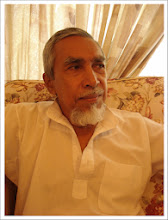1. If you were given a choice between
justice and a gold coin - which do you choose? Apparently, most people would
choose justice because its virtue governs
our societies. It is the moral principle that underlies
social progress. Upholding justice, Socrates was reported to have said: “Nothing
is to be preferred before justice.”
2. The above question is the subject of
an Indian folk tale. An idiosyncratic courtier when asked the question by his emperor
had chosen the gold coin instead of justice. His choice had made the other
courtiers as well as the emperor himself dumbfounded. The courtiers who were envious
of him for being the emperor’s favourite thought that he had had it for displaying
such idiocy in front of the emperor.
3. The emperor was very disappointed in
him so the courtier had to explain himself. According to him a person would ask
for what he didn’t have. As regards justice, the courtier said that the emperor
had
made it available to everybody in the country. He further explained that since justice was
already available to him and he was always short of money, so he said he would
prefer the gold coin to justice.
4. The question would remain relevant
indefinitely. It persists in the heads of those in positions of power. Like the
emperor’s courtier, they might well prefer the gold coin to justice except that
they do not need to explain themselves until their insidious disregard of
justice come to light. A professor of philosophy, Paul Bloomfield, wrote: “Leadership without an inner moral compass
reliably pointing toward justice inevitably ends in the abuse of power.”












